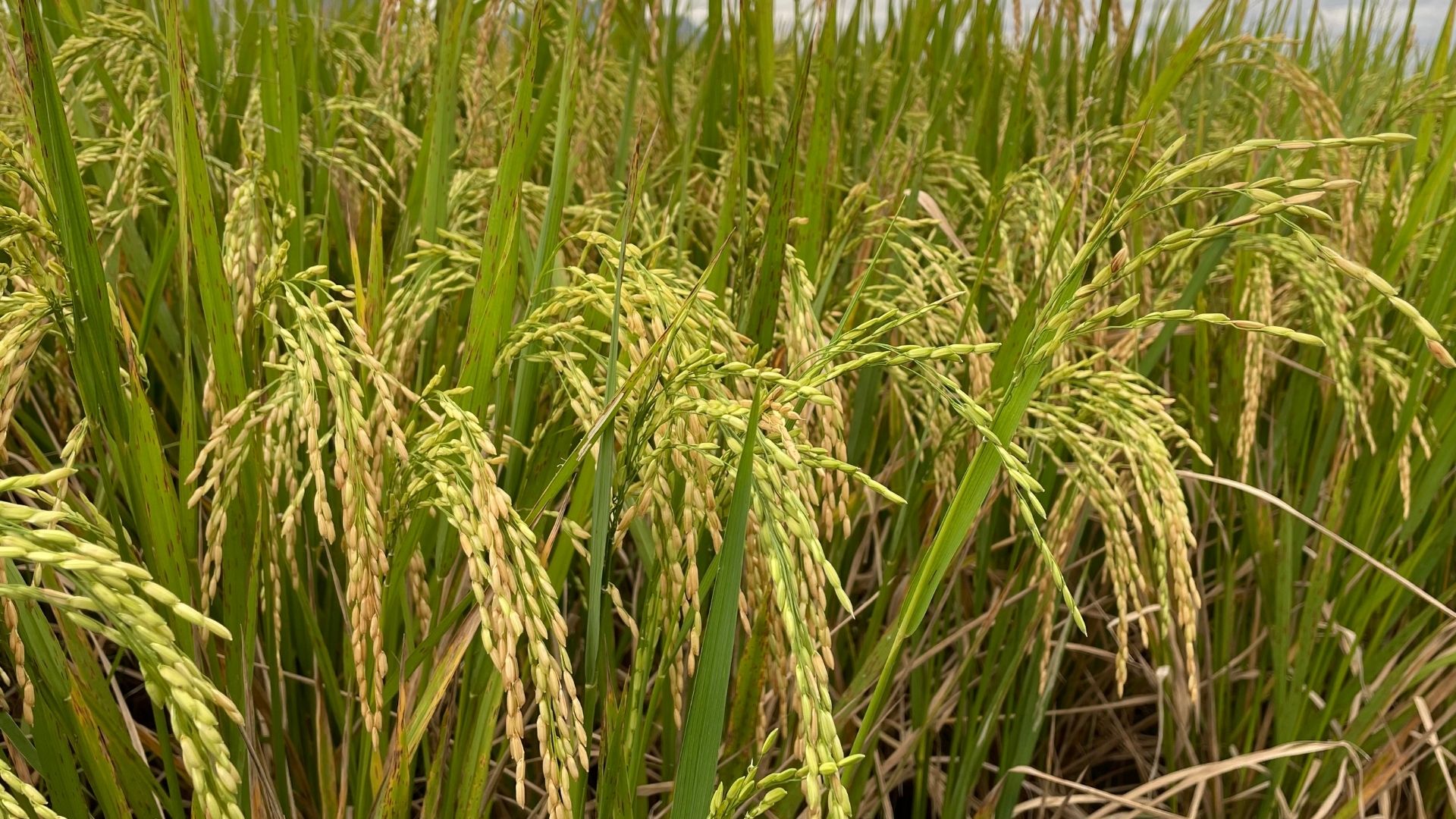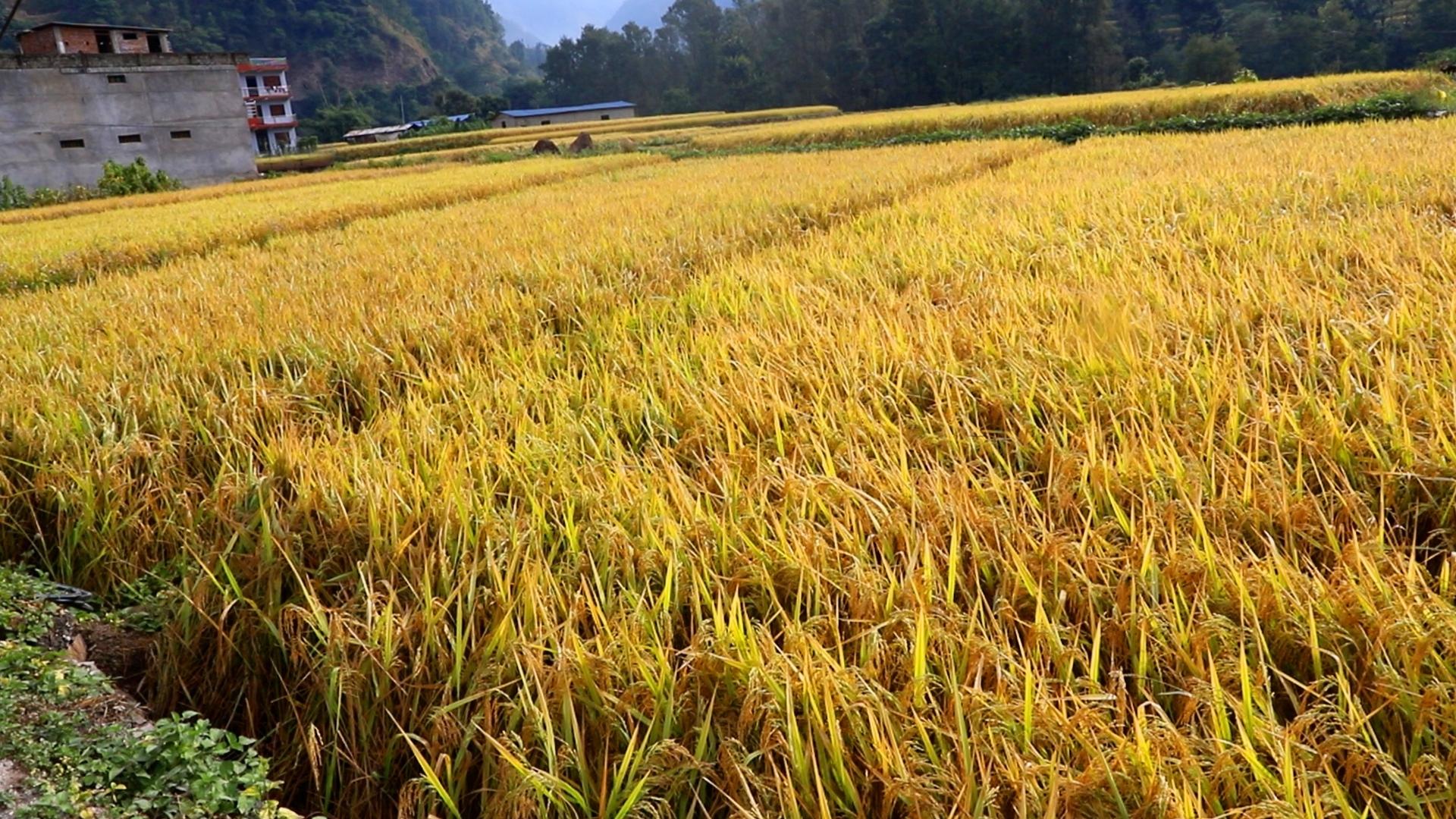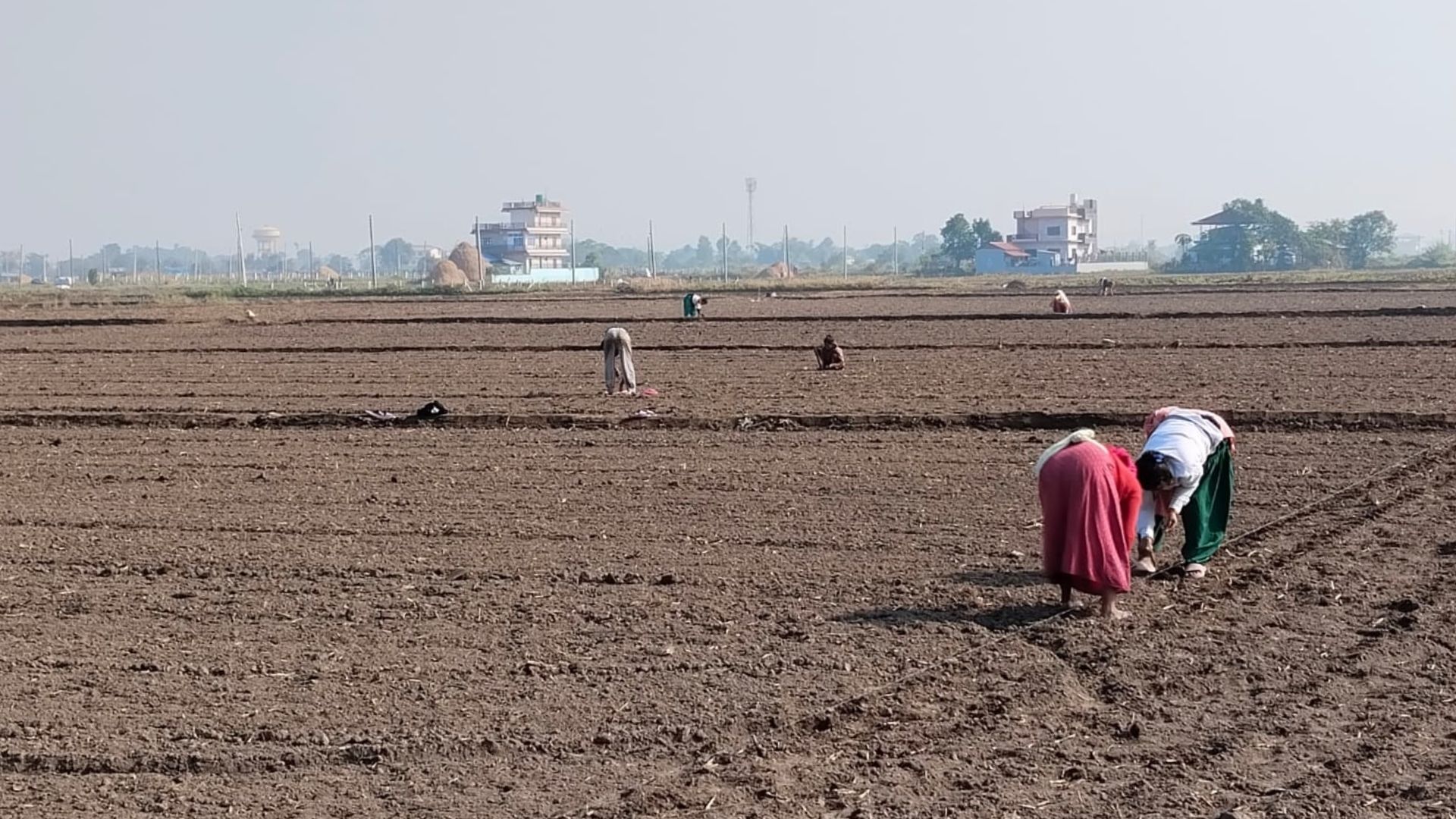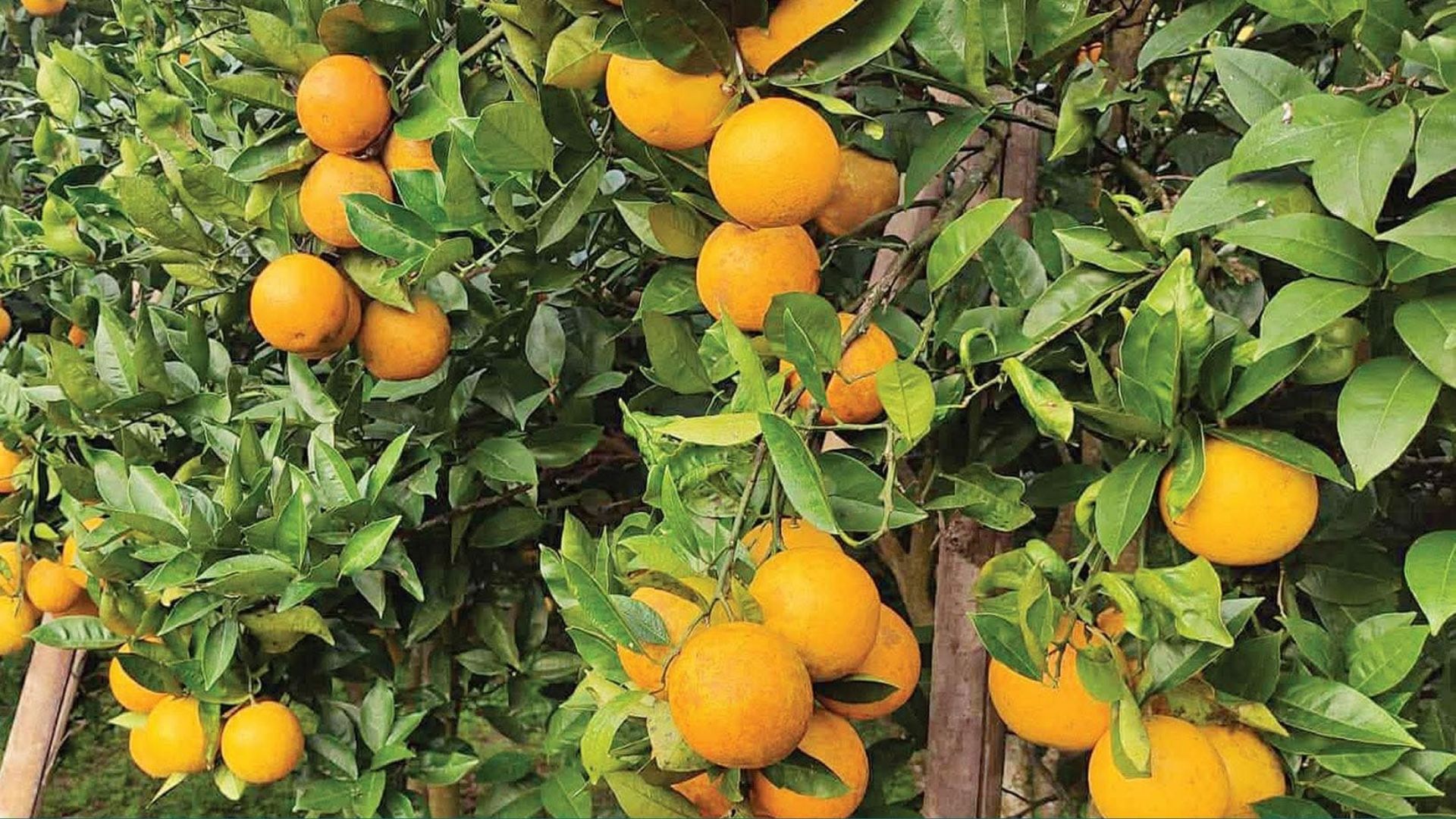In a remote expanse of Kalaiya sub-metropolitan in the Bara district of Madhesh Province stands Barewa Poultry Farm. Salik Ram Aryal and his two partners — Rajeshwar Bahadur Gautam and Santosh Kumar Shah — co-own the farm located alongside the paddy fields in Sisahaniya.
The farm subtly expresses the trio’s commitment to creating something of their own in their homeland, instead of seeking opportunities abroad.
A modest beginning
The story of Barewa Poultry Farm began in the year 2078 BS with a single hay-roofed duck coop on 1.45 bigha land that Salik Ram and his partners leased about eight years ago. The land had previously been used for fish farming.

“We did not have grand ambitions.” Salik Ram recalls, “Our goal was simple: building something of our own and creating a livelihood here rather than working abroad for someone else.”
Though Salik Ram had no contribution to the initial capital, he was appointed as the manager of the farm. It was his partners who invested around NRs 1.5 million.
Before venturing into duck farming, the partners had already embarked on farming Mangur fish, which they raised by feeding chicken viscera collected from the nearby Birgunj market.
During the winter, when the fish consumed less diet, the farm engaged in duck farming, leveraging their contract for fowl’s viscera with the chicken traders in Birgunj. For the following four to five months, the ducks were fed the viscera [cooked]. When summer arrived, the size of the fish diet returned to usual consumption, while the ducks were switched to a grain-based diet.
However, when health concerns arose regarding the consumption of Mangur fish, the partners decided to pivot to duck farming, driven both by practicality and necessity.
Building the farm
The early days were gruelling.
The farm’s first batch of 2,000 ducklings was brought from Janakpur for laying eggs. However, the income from selling the eggs alone [even for two long years] did not help recover their startup costs.
Grappled by swelling expenses, they planned to invest in egg incubators. The machine helped reduce the costs incurred in procuring ducklings from the eggs that were sent to Narayanghat.
With a significant cost of NRs 8 million, they imported four incubators (three earlier and one recently) from India. “This amount was partly borrowed from Sanima Bank. The new investment eased our operations,” Salik Ram explains. It reduced their travel costs by allowing them to hatch ducklings on-site. After 15-20 days of careful nurturing, the ducklings were ready to be sold directly to local farmers and merchants.
The farm now houses a large room specifically designated for the incubating machines and an egg storage room. This space also doubles as an office that has a cot and a desk [spread with bookkeeping records].

The Barewa Farm has grown from a single duck coop to multiple coops, which now house about 950 ducks (Runner and White Pekin), 200 guinea fowls, 18 turkeys, and a separate chicken farm about a kilometre away. The farm also boasts a human-made rectangular pond for cooling and bathing ducks.
Despite the signs of progress, Salik Ram claims that the farm is still struggling financially, with earned money being reinvested into expansion and infrastructure rather than booking it as profit. “We are not at zero level. We are sustaining.”
Overcoming obstacles
The farm’s journey has been anything but smooth.

Throughout the numerous challenges — including financial struggles, early difficulty in making profits, and the learning curve of managing a poultry farm — Salik Ram and his partners have remained resilient.
“We have had our share of troubles,” Salik Ram recalls. “Owing to poor financial conditions, we fed our ducks with wheat and corn. They could not digest those raw grains [containing fungus] which led to a higher fatality. Since then, we have only fed them high-quality grains.”
“A duck usually lays eggs for a maximum of four to five months in its lifetime. The season [of eggs] generally begins in Falgun and lasts till Jestha, and then comes a rapid decline.” The egg production in Barewa farm has plummeted from 500-600 units daily to 100-150 units since Jestha this year. “As of now, we are just maintaining the farm.”
During the rainy season, ducks lay fewer eggs, resulting in reduced sales. Moreover, ducklings also suffer a higher mortality rate.
To parry the further losses, the farm temporarily halts its incubator operations during the winter months (Mangsir, Poush, and Magh) and resumes them at the end of Falgun.
Community impact
Today, with an annual turnover of NRs 1 million, the farm has employed one helper at each farm to assist in feeding the fowls.
Salik Ram, who has had formal education up to tenth grade, is not only central to the entire farm operations but also to deal with the traders and fieldwork. While his other partner Santosh manages the chicken farm, Rajeshwar works at the tax section of the sub-metropolis.
The farm sells around 500 to 600 ducklings daily, with merchants distributing them across neighbouring districts — Parsa, Rautahat, and Sarlahi — on their bicycles and motorcycles.

Salik Ram takes pride in the farm’s contribution to the local community. “We provide a steady supply of healthy ducklings and chicks to local farmers, and our work has created employment opportunities.”
The farm’s ducks, once they cease laying eggs, are sold to local merchants who subsequently sell the ducks to local households for consumption.
Advice for aspiring farmers
For those considering venturing into duck farming, Salik Ram offers the following advice:
“Start small. Do not rush into it with big numbers. Start around 200 in number or less. Ducks take time to show returns — often two and a half years before you see any real profit. Unlike broiler chickens, which you can sell in 40-45 days, ducks require patience and careful management.”
Salik Ram also emphasises the importance of proper nutrition for the ducks.
“If you are farming ducks for their eggs, they must be fed a high-protein diet grain, preferably layer grain (L1 or L2), which is pre-cooked. Feeding them raw grains like corn or wheat will not be enough. They will grow, but they will not lay eggs. A balanced protein diet is crucial for their health and productivity. Even after this, only about 70% will give eggs. There will always remain a gap of 30%.”
“One must also know that the duck and the chicken must not be farmed in the same space. While a duck has comparatively higher immunity to infection, a chicken does not. A disease called CRD (Chronic Respiratory Disease) is more prone to the chicks causing more deaths. Ducks are not easily affected. For this very reason, we built a separate farm for the chickens.”
Moving ahead
For now, Salik Ram is clear about his priorities — settling their outstanding loans before considering any further expansion. “If the loan is settled, the interest amount is saved automatically.” He is confident about recouping investment within the next five years.

“We are not in a rush to grow beyond our means,” he adds. “Our focus is on effectively managing what we have. Once we are on stable ground, we might think about expanding to new areas like Nijgadh or Chitwan, but for now, we focus on doing the best we can with what we have.”
The farm also hopes to start farming new varieties of fish soon.
















